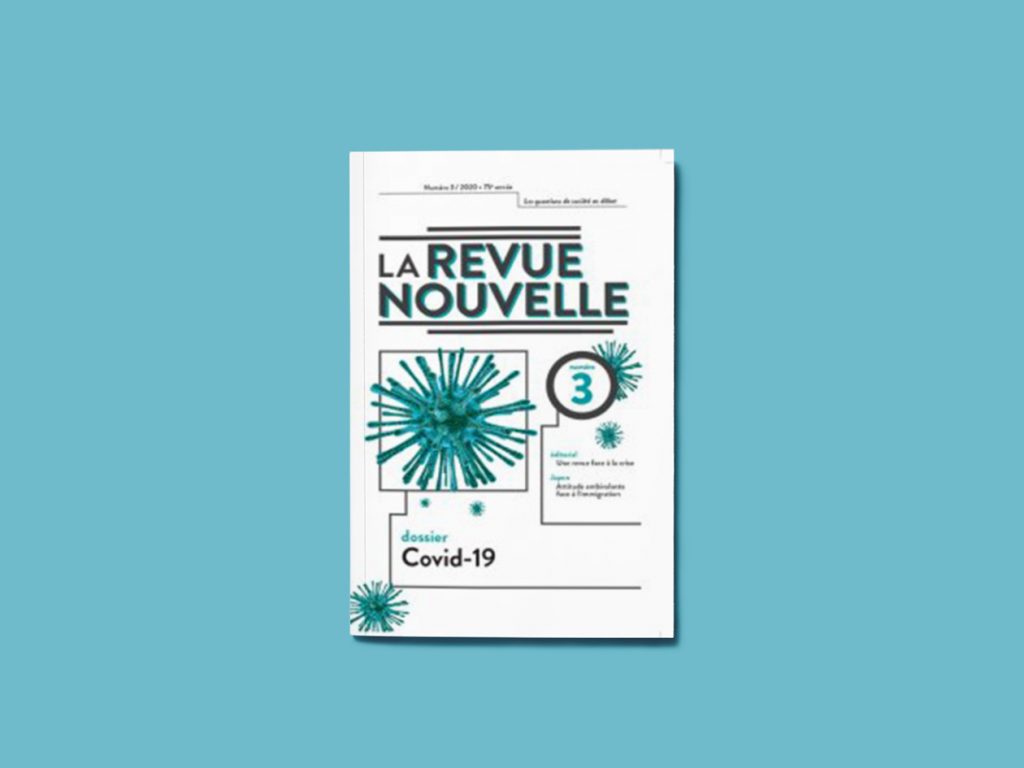The Belgian journal on why outmoded psychology can lead to misguided policy responses; the ‘cacophony of experts’ and the old question of reliability of sources; and why this supply-side crisis won’t be solved by banks alone.
 In La Revue Nouvelle, Olivier Klein offers a brief history of mass psychology, dissecting stock definitions of ‘crowds’, ‘panic’, ‘infection’ and ‘irrationality’. Outmoded psychological theory is not only inadequate for describing the current phenomena, he argues, but can lead to misguided responses, including over-centralized and repressive policy decisions.
In La Revue Nouvelle, Olivier Klein offers a brief history of mass psychology, dissecting stock definitions of ‘crowds’, ‘panic’, ‘infection’ and ‘irrationality’. Outmoded psychological theory is not only inadequate for describing the current phenomena, he argues, but can lead to misguided responses, including over-centralized and repressive policy decisions.
Contemporary news media’s ‘repeated use of shots of empty supermarket shelves’ perpetuates the problem. However, the increasing significance of social media and the nurturing of collective identities are proving key in producing and sustaining an alternative model: ‘the resilience of crowds’.
Lesson in humility
Experience of reporting on the coronavirus crisis prompts Arnaud Ruyssen to revisit the genesis of the story. ‘The cacophony of experts’ offering widely differing views poses huge intellectual and ethical challenges — a reflection of how belatedly the scale of the problem was understood.
New and intense engagement with the public via social media has highlighted novel facets of the eternal issues facing media professionals: the reliability of sources and the responsibility of the press toward the public. When ‘being a journalist in a major news organization provides no guarantee that the public will trust you’, and ‘rights and freedoms are already on hold’, how can the press best function as the ‘guardians of democracy’?
Corona recession
Xavier Dupret takes a historical perspective to explain how the disease ‘has exposed the profound structural weaknesses at the heart of our economies’. Deriding the ‘ideological blindness of the neoclassical school’ and ‘fables about exogenous shocks’, he argues that this ‘supply side crisis’ will be different.
Wage stagnation, oil-price fluctuations, structural debt levels and US federal reserve policy all point to strong deflationary pressure, leading to a retraction of over-extended global supply lines and value chains. Mainstream economic theory and business practice have left our economies vulnerable. Unlike in 2008–9, central banks alone will not be able to save us; however, state intervention and even nationalization may help mitigate the worst.
More articles from La Revue nouvelle in Eurozine; La Revue nouvelle’s website
This article is part of the 10/2020 Eurozine review. Click here to subscribe to our weekly newsletter, to get updates on reviews and our latest publishing.

This article was published in cooperation with CAIRN International Edition, translated and edited by Cadenza Academic Translations.
Published 8 June 2020
Original in English
© Eurozine
PDF/PRINTPublished in
In collaboration with
Newsletter
Subscribe to know what’s worth thinking about.
Related Articles

Donald Trump’s impending return to the White House has broad repercussions. His unpredictable approach to foreign policy could leave an even greater impact on the world than it did in his first term. Both Kyiv and Moscow have been preparing for the potential scenario of a second round.

The debate between Keynes and Hayek must be between a historically accurate Hayek and a historically accurate Keynes. Only then can the differences – and the common ground – between these two key economists of the mid-20th century be understood.










